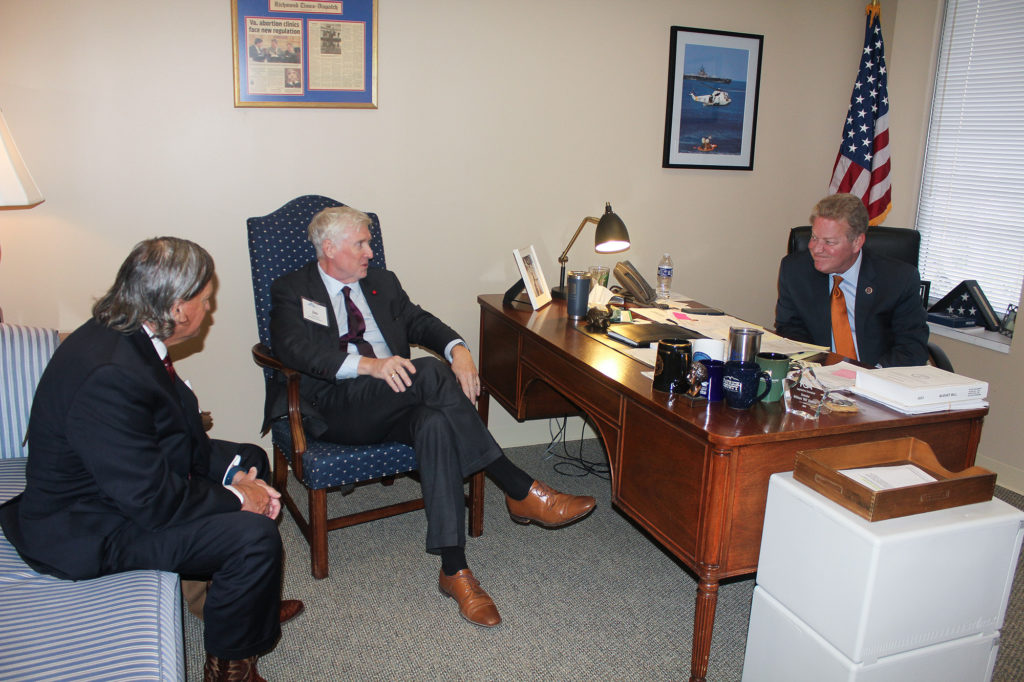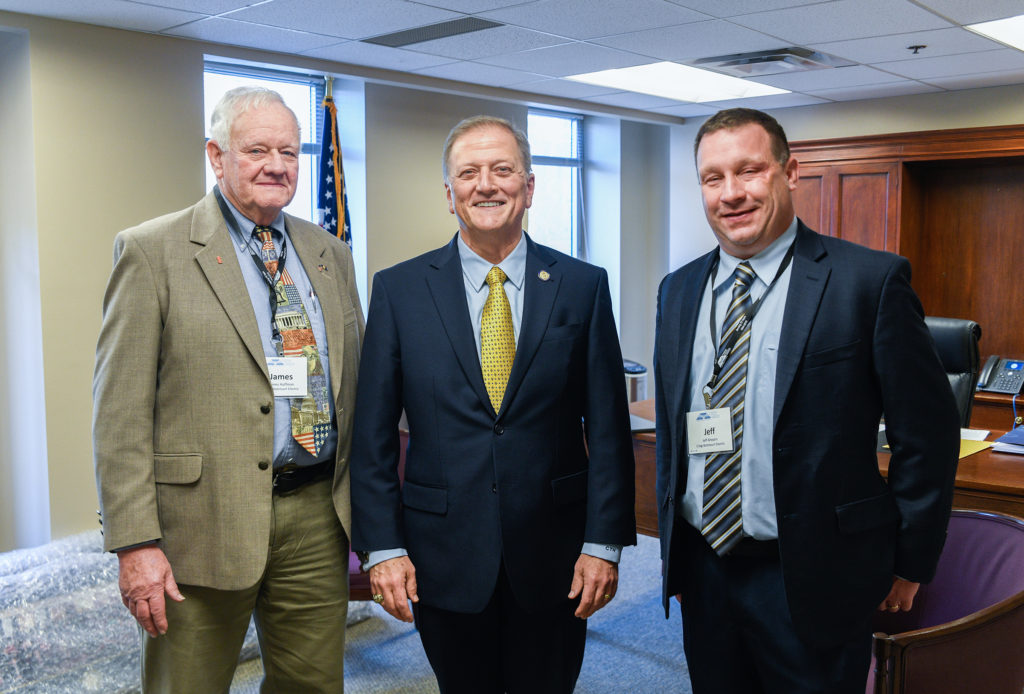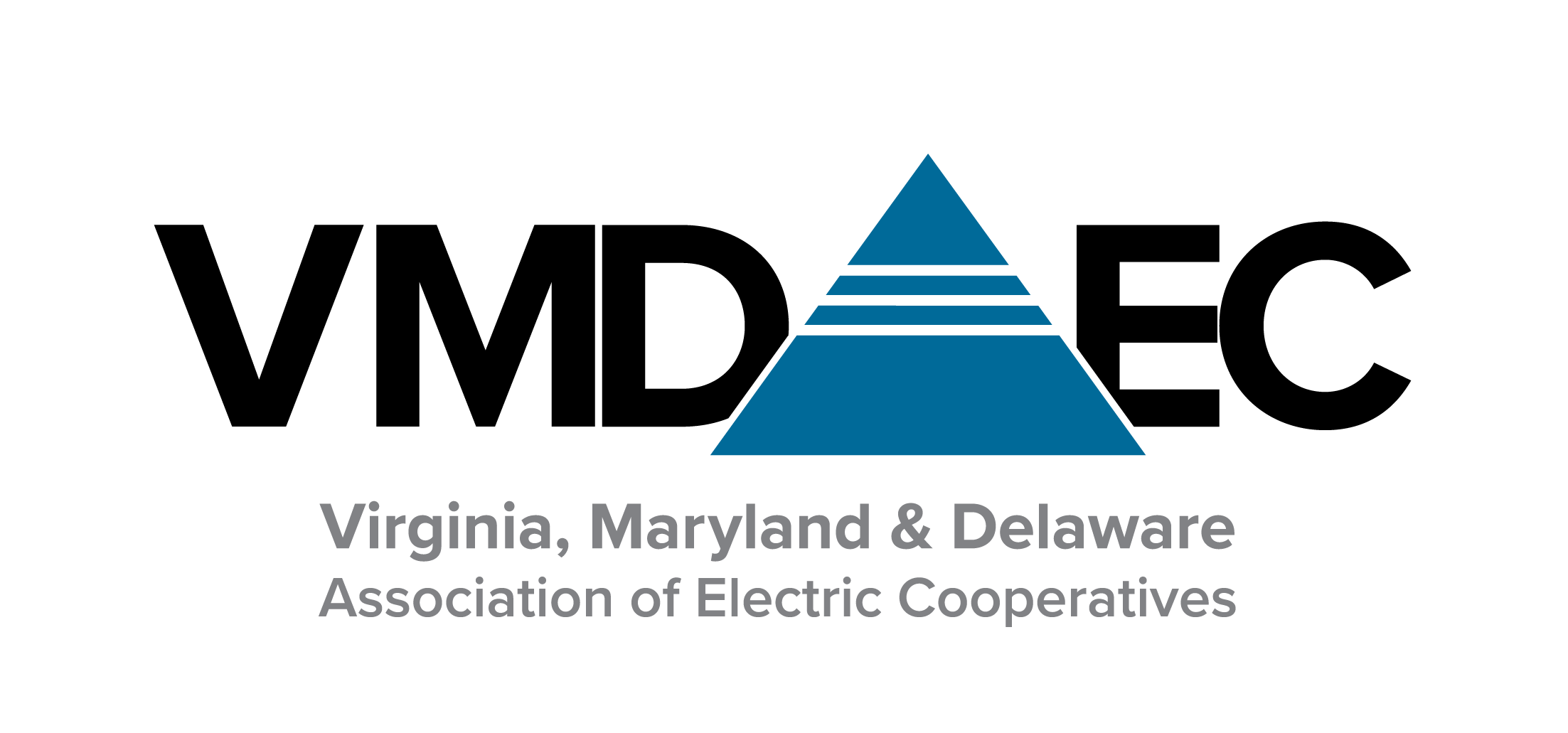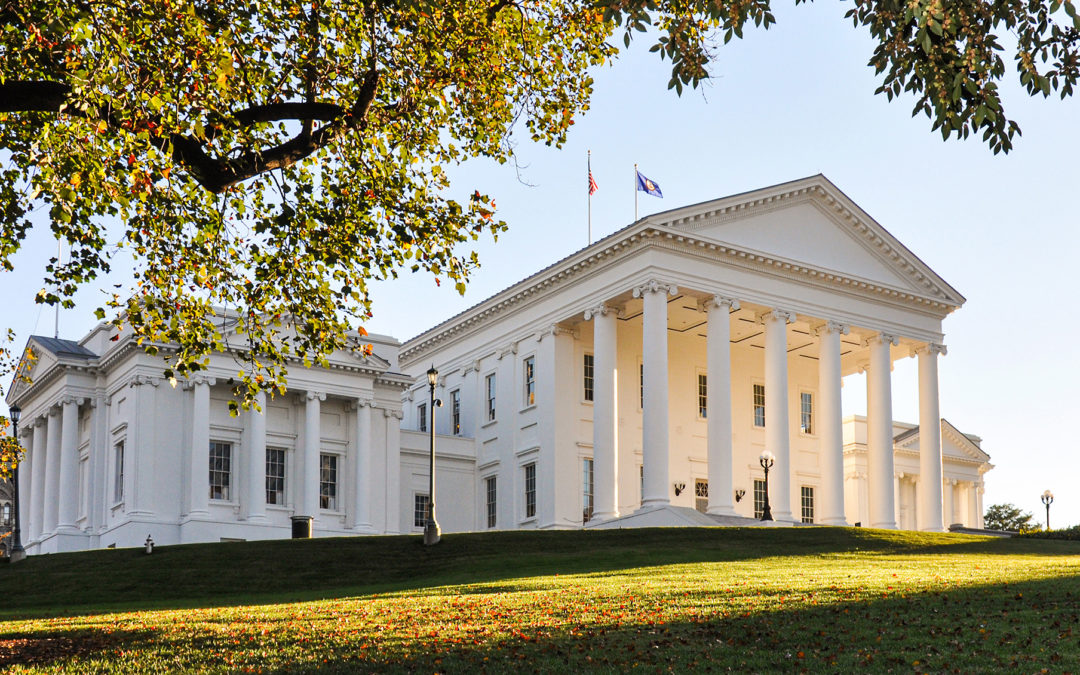After almost two months of negotiation and debate, legislators adjourned the 2023 Virginia General Assembly Session on Saturday without a budget. While some business of the Commonwealth is left unfinished, Virginia’s electric cooperatives had resounding victories and made great strides in our legislative agenda.
This year, VMDAEC’s government affairs staff and legislative liaisons from Virginia’s co-ops worked diligently to pass two signature pieces of legislation, while supporting, amending and defeating several others that impact the cooperative

From right, Sen. Bill Stanley visits with Mecklenburg Electric Cooperative Vice President of Administration and General Counsel Jim Guy and Director Bob Jones during the 2023 Legislative Day. Photo by Laura Emery.
industry. Sponsored by Del. Chris Head, HB 1752 and its identical companion, SB 1029, sponsored by Sen. Bill Stanley, standardized the processes used by co-ops to cross railroad tracks in the construction of middle- and last-mile fiber.
For years, railroad companies have used their monopolistic control over their industry to charge cooperatives tens of thousands of dollars for a single crossing and required cooperatives to wait for over 18 months for each permit to be approved. For years, cooperatives and other industry stakeholders have worked toward a solution, only to have railroad companies kill legislation with false promises to resolve issues outside of the legislature.
This year, the landscape was different. The Commonwealth has allocated more than $1 billion in taxpayer funds for the construction of fiber broadband networks in unserved areas through the Virginia Telecommunications Initiative. VATI funded projects must be completed in the next 36 months, and railroad crossings are the barrier that continues to delay broadband construction.
VMDAEC government affairs staff worked with our industry colleagues to create a coalition of support for the bills that included:
- VCTA – The Broadband Association of Virginia
- Americans for Prosperity
- Virginia Farm Bureau
- Virginia Association of Counties
- Verizon
- All Points Broadband

Del. Chris Head (center) stands with Craig-Botetourt Electric Cooperative Director James Huffman (left) and CEO Jeff Ahearn following a brief meeting during the co-op’s legislative visits in January. Photo by Jim Robertson.
- Mid-Atlantic Broadband Communities Corporation
- Microsoft
- Innovate Lynchburg
- Charlottesville Business Innovation Council
- Dominion Energy
- Virginia Agribusiness Council
- Roanoke Blacksburg Technology Council
- Hampton Roads Innovation Collaborative
- Northern Virginia Technology Council
- Greater Richmond Technology Council
- The Virginia Blockchain Council
After weeks of negotiations and committee hearings, both HB 1752 and SB 1029 passed out of their respective chambers unanimously.
After successful passage of the bill, Senate patron Bill Stanley said, “Virginia’s electric co-ops have been leading the way in bringing fiber optic
broadband service to where it is needed most in the commonwealth. The co-ops came to this general assembly session with a significant problem and sought to find a fair and reasonable legislative solution to fix it.
“Their outstanding legislative team worked closely with our Senate office to craft a piece of legislation that brought both balance and efficiency to the process. And now, with the passage of Senate Bill 1029, we have created a clear and permanent framework for the installation of fiber-optic cable across the state’s many miles of railroad tracks without further delay. This important new law means that our local electric co-ops can continue to drive forward in their quest to bring affordable, high-speed broadband service to every corner of the rural regions that they serve.”
This year, co-ops also closely followed and supported legislation to extend Virginia’s moratorium on municipal annexation. HB 1676, patroned by Del. Keith Hodges, and SB 1185, patroned by Sen. Lynwood Lewis, extended the moratorium and ensured that city governments and their municipal utilities cannot annex surrounding lands and utility infrastructure. Both bills passed out of their respective chambers unanimously.
VMDAEC co-ops can proudly add passage of these bills to our record of pivotal legislative accomplishments. Once again, co-ops have proven that when we join forces and speak with a unified voice in the halls of government, legislators listen.
–Report by Sadie Gary, Director of Public Affairs, VMDAEC.


